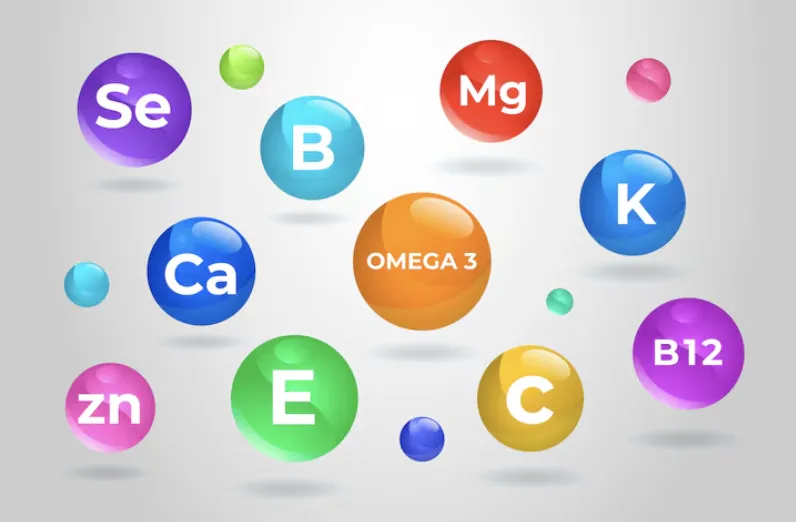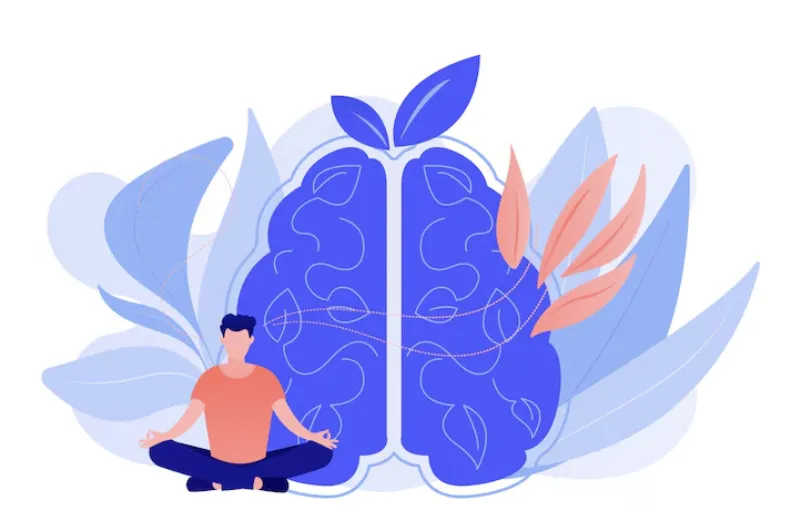Understanding Vitamins and Their Effects on Health

Vitamins are essential organic compounds that the body requires in small amounts to function correctly. They play critical roles in various physiological processes, including energy production, immune function, and cellular repair. Since the body cannot produce most vitamins, they must be obtained through diet or supplements. This article delves into the types of vitamins, their sources, and their effects on health.
Types of Vitamins
Vitamins are categorized into two main types based on their solubility:
Fat-Soluble Vitamins:
These vitamins are stored in the body's fatty tissues and liver, making them available for use over time. Excessive intake can lead to toxicity.
Examples:
Vitamin A: Important for vision, immune health, and cell growth. Sources include carrots, sweet potatoes, and liver.
Vitamin D: Essential for calcium absorption and bone health. Found in sunlight exposure, fortified milk, and fatty fish.
Vitamin E: Acts as an antioxidant, protecting cells from damage. Sources include nuts, seeds, and vegetable oils.
Vitamin K: Plays a key role in blood clotting and bone metabolism. Found in leafy green vegetables and fermented foods.
Water-Soluble Vitamins:
These vitamins are not stored in the body and need regular replenishment through diet. Excess amounts are excreted in urine.
Examples:
Vitamin C: Boosts the immune system, aids in collagen production, and acts as an antioxidant. Sources include citrus fruits, bell peppers, and strawberries.
B-Vitamins: A group that supports energy production, brain function, and red blood cell formation. Includes:
B1 (Thiamine): Found in whole grains, pork, and legumes.
B2 (Riboflavin): Present in dairy products, eggs, and green vegetables.
B3 (Niacin): Found in meat, fish, and peanuts.
B6 (Pyridoxine): Found in poultry, bananas, and fortified cereals.
B9 (Folate): Crucial for DNA synthesis and cell division. Found in leafy greens, beans, and fortified grains.
B12 (Cobalamin): Essential for nerve function and red blood cell production. Found in animal products like meat, eggs, and dairy.
Effects of Vitamins on Health
Promoting Growth and Development:
Vitamins like A, D, and C are essential for the proper growth and maintenance of bones, tissues, and skin.
Boosting Immunity:
Vitamins such as C and E help strengthen the immune system by fighting oxidative stress and supporting white blood cell function.
Preventing Deficiencies:
A lack of specific vitamins can lead to health issues, such as scurvy (Vitamin C deficiency), rickets (Vitamin D deficiency), and anemia (Vitamin B12 or Folate deficiency).
Enhancing Energy and Brain Function:
B-vitamins play a pivotal role in converting food into energy and maintaining cognitive health.
Reducing Disease Risk:
Antioxidant vitamins (A, C, and E) help reduce the risk of chronic diseases by protecting cells from damage caused by free radicals.
Potential Risks of Overconsumption
While vitamins are essential, excessive intake can lead to health problems, especially with fat-soluble vitamins, as they accumulate in the body. For instance:
Vitamin A toxicity can cause headaches, dizziness, and liver damage.
Vitamin D overdose may lead to calcium buildup in the blood, causing nausea, kidney stones, or heart problems.
High doses of Vitamin C might cause gastrointestinal discomfort.





